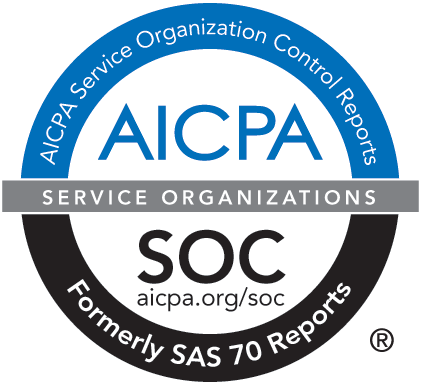Charitable Giving Under The One Big Beautiful Bill Act: What Nonprofits & Donors Need to Know
July 23, 2025 - Is the thought of reading through the nearly 900 pages of the One Big Beautiful Bill Act (OBBB), which was signed into law by President Trump on July 4, rather taxing? Admittedly, OBBB can serve as a potent insomnia remedy, but it also contains some important changes related to charitable giving. Here, we highlight OBBB’s key charitable giving provisions and their potential impact on nonprofit organizations and donors.
Standard Deduction
Many provisions of the Tax Cuts and Jobs Act of 2017 (TCJA), including a doubled standard deduction, were scheduled to sunset at the end of this year. Instead, OBBB makes the increased TCJA standard deduction (indexed annually for inflation) permanent. The standard deduction for 2025 increases to $15,750 for single filers and $31,500 for those married and filing jointly. For the next few years, taxpayers aged 65 and older can also take advantage of an expanded bonus deduction.
Takeaway: The increased standard deduction has resulted in approximately 10% of all taxpayers itemizing, leaving 90% of taxpayers with no tax incentive for charitable giving. Instead, generous donors are primarily motivated by supporting the missions of their favorite nonprofits.
For donors who do not meet the threshold to itemize due to the high standard deduction, charitable bundling can help maximize total tax savings. With this giving strategy, donors make multiple years’ worth of charitable contributions in a single year, itemize that year, then take the standard deduction in subsequent years. A bundling strategy can be particularly effective for 2025 as a charitable deduction floor and cap (described below) goes into effect in 2026. Donors who utilize this giving strategy may benefit from a donor-advised fund (DAF). DAF contributions are tax-deductible in the year given, invested for tax-free growth, and can be granted to charities over time according to the donor’s typical giving pattern.
Charitable Deduction for Non-Itemizers
Beginning in 2026, OBBB includes a $1,000 charitable deduction ($2,000 for joint filers) for taxpayers who donate cash and do not itemize, though contributions to donor-advised funds are not eligible for this deduction.
When the standard deduction was doubled in 2017, many nonprofits worried that non-itemizing donors would be less motivated to support charitable causes. In fact, researchers at Indiana University and the University of Notre Dame calculated $20 billion in reduced charitable giving the year after the deduction was doubled. OBBB’s new charitable deduction has potential to counter this trend and increase giving.
Beginning in 2027, donors who contribute to state-approved, federally recognized scholarship granting organizations can receive a dollar-for-dollar tax credit of up to $1,700 per taxpayer. This tax credit program requires states to opt-in, so not all states may choose to offer it.
Takeaway: The $1,000 deduction and the $1,700 tax credit provide helpful incentives for charitably inclined taxpayers who do not itemize.
AGI Deduction Limits
A donor’s charitable deduction is limited to a percentage of their adjusted gross income (AGI) in the year of the gift. In 2018, this limit was raised from 50% to 60% of AGI for cash gifts. OBBB makes this increased limit for cash gifts permanent.
The deduction limit stays at 30% of AGI for most gifts of appreciated assets. Donors whose charitable contributions exceed the applicable limit for either cash or noncash assets can carry their remaining deduction forward for up to five years.
Takeaway: Deduction limits enable larger cash gifts, though capital gains tax savings often make noncash gifts an even smarter giving strategy.
Itemizer Restrictions
The ten percent of taxpayers who itemize face slightly increased hurdles under OBBB. The Act establishes a 0.5% of income floor for charitable deductions, meaning donors can only take deductions that exceed 0.5% of their AGI. Also, taxpayers in the highest (37%) tax bracket will now face a 35% cap on total itemized deductions.
Takeaway: If a generous donor is concerned about loss of itemized deductions due to the floor or cap, alternate strategies, such as making qualified charitable distributions from an IRA (up to $108,000 a year) or donating to a charitable remainder trust, may offer advantages.
Gift and Estate Tax Exemption
People with moderately high estates can breathe a sigh of relief, as OBBB prevented the sunset of increased gift and estate tax exclusion amounts, instead permanently increasing the exclusion amount to $15,000,000 per person beginning in 2026.
Takeaway: Most people won’t need to worry about a federal estate tax (less than 1% of Americans face federal estate taxes), though many states have much lower state estate tax exclusion amounts. Thus, charitably inclined people are likely to achieve more tax savings from gifts made during their lifetime rather than giving through their estates, with the important exception of including charitable organizations as retirement account beneficiaries to reduce taxation of those assets.
Excise Taxes for Nonprofits
Hearing news blurbs or political rhetoric, many nonprofits have become concerned about excise taxes. However, the vast majority of nonprofits are not impacted. Nonprofits currently pay excise tax on compensation in excess of $1 million for their top five employees. Under the new law, nonprofits will face excise taxes for any employee who is paid more than $1 million annually.
Private colleges and universities holding endowment assets that are not used to directly carry out the institution’s exempt purposes and valued at $500,000 or more per student also face excise taxes. This taxation of university endowments has been in place, but OBBB introduces higher taxation for wealthier universities with at least 3,000 tuition-paying students.
Takeaway: Most nonprofits will not be impacted by new excise taxes under OBBB.
If you have questions about how these changes may affect your nonprofit or personal philanthropic goals, our Trust and Legal team is here to help. Please reach out to us at 214.978.3300 or legalteam@highgroundadvisors.org.



